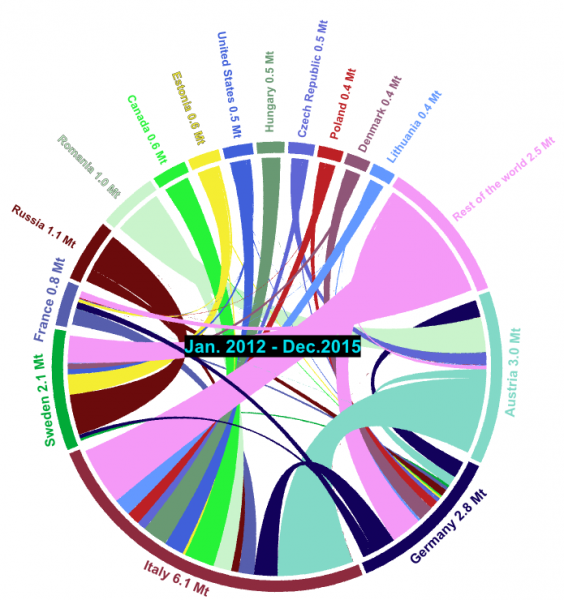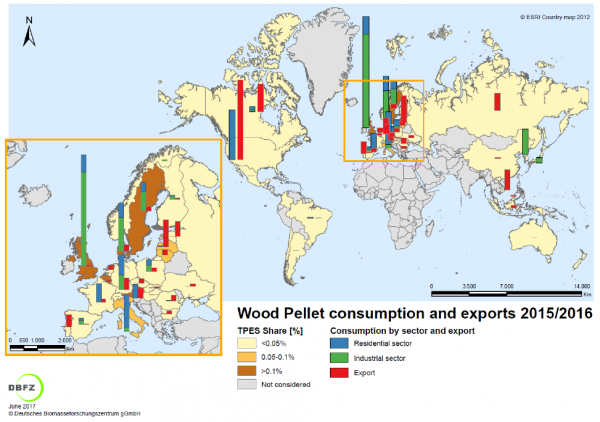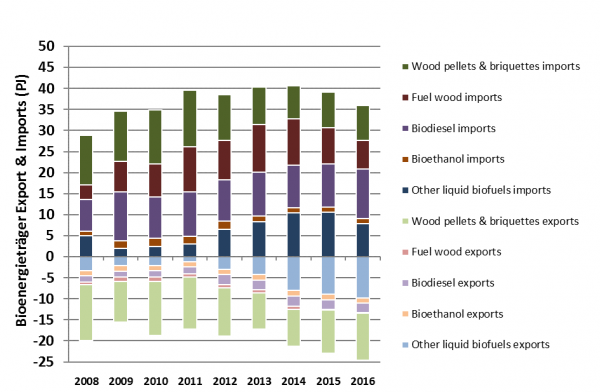IEA Bioenergy Task 40: Sustainable Bioenergy Markets and International Trade: Securing Supply and Demand
Short Description
Since the year 2008, the TU Wien / Energy Economics Group (EEG) has been a member of the IEA Bioenergy Task 40. Over the last few years, numerous studies, subtasks and workshops on the dynamics of bioenergy markets and the opportunities, but also possible problems, of international bioenergy trade could be elaborated and published. Regular meetings allow members to flexibly respond to current problems and to research in working groups as part of this task.
In the triennium 2016-2018, the focus of the task was on biomass trade for an integrated bioeconomy, which, in addition to the use of energy, envisages also new, innovative uses of biomass for purposes such as biopolymers, biomaterials and other applications. It is expected, that biomass resources (e.g., sugar, cellulose, etc.) and intermediates (e.g., lignin, polymers, etc.) will continue to have a growing sales market for energy and non-energy use. Therefore, it is crucial for biomass availability for energy use and for bioenergy trade in general to pay close attention to these upcoming sectors.
For this purpose, so-called intertask projects, i.e. work in collaboration with the tasks on biogas technologies, biomass gasification and biomass combustion were increasingly carried out. The intertask projects enabled us to consider the production and consumer systems of bioenergy markets more holistically and to increasingly address different biomass types and uses, including in the material area, which is essential, for example, for discussing the sustainability of a bioeconomy. Case studies on established bioenergy supply chains and their success factors and replicability were also carried out, involving a majority of the partners of the IEA Bioenergy Technology Collaboration Program (TCP). Significant contributions of the Austrian representation were delivered to the following projects:
- The European wood pellet market for small-scale heating; biomass prices & trade study
- Global Wood Pellet Industry and Trade Study 2017
- Pellet price margin potentials for long-term sustainable and economic feasible wood pellet supply chains
- Intertask project: Fuel pre-treatment of biomass residues in the supply chain for thermal conversion
- The future of biomass- and bioenergy trade
- Intertask project: Developing the Global Bioeconomy: Technical, Market, and Environmental Lessons from Bioenergy
- Bioenergy Country Report Austria – Update 2018
- Bioenergy success stories
- Future perspectives of bioenergy development in Asia
In order to cover the growing demand for biomass for bioenergy and other bioeconomy products in a long-term and economically viable way, sustainable, condensed intermediates or successful market implementations of corresponding technologies will be in demand. The results have been summarised in the present document and linked accordingly to the full papers and reports
Project Partners
Participants
Austria, Belgium, Denmark, Finland, Germany, Italy, Netherlands, Sweden, United Kingdom, United States of America
Contact Address
TU Wien, Energy Economics Group (EEG)
Lukas Kranzl, Fabian Schipfer
Gusshausstr. 25-29/370-3
A-1040 Wien
E-Mail: kranzl@eeg.tuwien.ac.at, schipfer@eeg.tuwien.ac.at
Website: http://eeg.tuwien.ac.at/
Wild & Partner KG
Michael Wild
E-Mail: michael@wild.or.at



